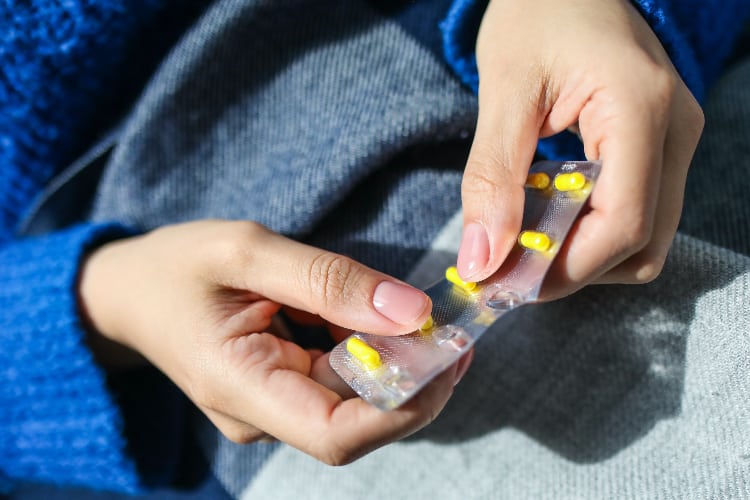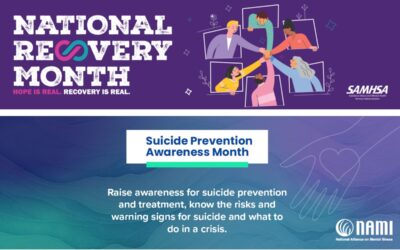Dual Diagnosis
Call Now
Dual Diagnosis Programs in San Diego

Causes Of Substance Abuse & Mental Health Issues
On the other hand, an individual who is battling a SUD may start to show signs of a mental illness. These mental disorders, as well as addiction, may interact with environmental and genetic influences.
Mental Health Disorders Often Seen With Substance Abuse
- Anxiety: Trouble concentrating and breathing, feeling on edge, headaches, tiredness, irritable, muscle tension.
- Depression: Loss of interest in usual things, weight changes, lack of energy, feeling useless and hopeless.
- Bipolar Disorder: Extremely irritable, feeling euphoric, increased energy, rapid speech and thoughts, impulsiveness, anger.
Possible Signs And Symptoms
Possible signs that indicated someone might have a mental illness and substance abuse problem include:
- A sudden change in behavior
- Withdrawal from previously enjoyed activities, or friends and family
- Needing drugs to function
- Increase in tolerance to drugs or alcohol
- Putting yourself in a dangerous situation to obtain drugs and alcohol

Dual Diagnosis Treatment
At Healthy Life Recovery, dual diagnosis treatment begins with addressing a patient’s drug or alcohol abuse as well as the underlying mental illness. Then, a detox process is needed to clear the body of all substances. Following a successful detox program, inpatient rehabilitation or a sober living home is typically the biggest factor in the treatment process. A safe, supportive environment helps eliminate any temptations during treatment and increases the odds for long-term recovery.
Psychotherapy is another successful part of integrated treatment. This allows the individual to explore the idea of what causes their difficulties and how to overcome them. There are individual or group therapy options to learn coping skills that will help the person achieve recovery. In some cases, medication-assisted treatment (MAT) can be beneficial for mental health issues.
Possible therapiesinvolved in treatment include:
- Coping skills and strategies to minimize or stop substance abuse
- Basic education on mental disorder and related problems
- Learning strategies for change and decision-making
- Identifying what provokes substance abuse
- Social skills training to strengthen relationships
Transitional care is the next step. This can include outpatient rehab, where an individual can still receive care outside of a rehabilitation center. Making the transition to outpatient rehab is extremely important in the success of recovering from addiction and mental health issues.

Dual Diagnosis Outpatient Rehab
At Healthy Life Recovery, we make sure the addiction treatment you receive addresses both conditions in order for a successful recovery. Our rehab facility in San Diego provides a safe and caring environment to overcome your problems and live a fulfilling life. Become independent and end the battle with substance abuse and mental health issues by giving us a call today.
Mental Health-Related Blogs
What is TMS and How Does it Work?
Transcranial Magnetic Stimulation (TMS) is a noninvasive procedure that uses magnetic fields to stimulate nerve cells in the brain, intending to improve symptoms of conditions such as major depression. This is achieved without the need for surgery or any invasive techniques. The procedure involves an electromagnetic coil placed against the scalp, which creates a magnetic field that stimulates specific brain areas involved in mood control and depression.
Am I Depressed? Depression Self-Test
Depression is more than just feeling down or having a bad day. It’s a serious mental health condition that affects the mind and body. If you’ve been feeling low for a while, it might be a good idea to understand the signs and symptoms of depression and consider taking the PHQ-9 Depression Test.
Suicide and Addiction
September holds dual significance as both Suicide Prevention Month and Recovery Month, underscoring the profound connection between suicide and addiction. This period serves as a poignant reminder of the intertwined crises many face and the collective responsibility...

Medically Reviewed By:
Dr. Sanjai Thankachen
Dr. Sanjai Thankachen graduated from Adichunchanagiri Institute of Medicine in 2000. He completed his residency in psychiatry in 2008 at Creedmoor Psychiatric Center in New York. Dr. Thankachen is currently working with Pacific Neuropsychiatric Specialists in an outpatient practice, as well as working at multiple in-patient psychiatric and medical units bringing his patients the most advanced healthcare treatment in psychiatry. Dr. Thankachen sees patients with an array of disorders, including depression, bipolar illness, schizophrenia, anxiety, and dementia-related problems.

Edited for Clinical Accuracy By:
Sean Leonard, Psychiatric Nurse Practitioner
Sean Leonard is a board-certified psychiatric nurse practitioner. He received his master’s degree in adult geriatric primary care nurse practitioner from Walden University and a second postmaster specialty in psychiatry mental health nurse practitioner from Rocky Mountain University. Sean has experience working in various diverse settings, including an outpatient clinic, inpatient detox and rehab, psychiatric emergency, and dual diagnosis programs. His specialty areas include substance abuse, depression, anxiety, mood disorders, PTSD, ADHD, and OCD.



